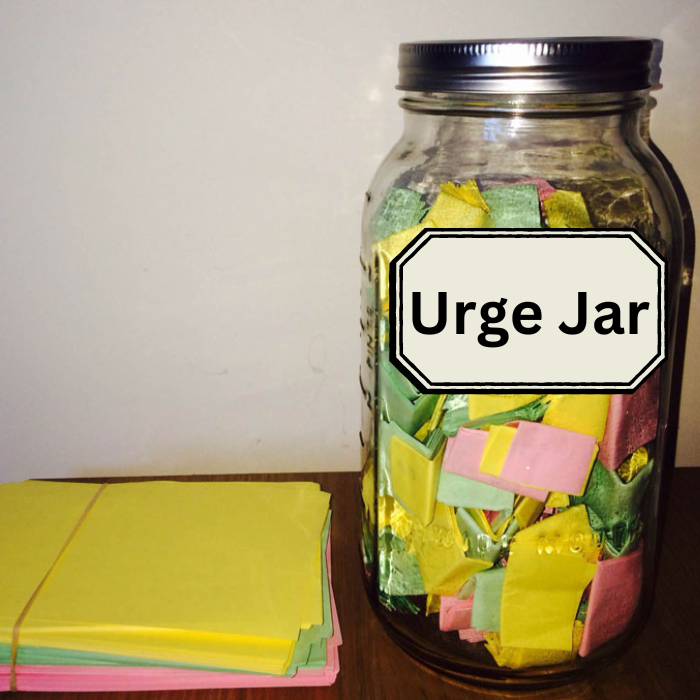 You have made some pretty big changes in the past few weeks. You’ve cut down or stopped drinking and using substances, you’ve tried to reach out to friends and family to build up a support network, and you’ve worked to align your daily life with your values and goals for yourself. Overall, it’s been a huge success, and you’re feeling great about yourself. That’s when a little voice in your head starts to speak, a little voice that says, “You know what, I have done a great job! Things are so different right now, I could totally go out and drink and not over-do it! I’ve got this all under control!” That little voice is yours; it’s your brain doing a little something called relapse justification, and it’s a normal part of any behavior change process.
You have made some pretty big changes in the past few weeks. You’ve cut down or stopped drinking and using substances, you’ve tried to reach out to friends and family to build up a support network, and you’ve worked to align your daily life with your values and goals for yourself. Overall, it’s been a huge success, and you’re feeling great about yourself. That’s when a little voice in your head starts to speak, a little voice that says, “You know what, I have done a great job! Things are so different right now, I could totally go out and drink and not over-do it! I’ve got this all under control!” That little voice is yours; it’s your brain doing a little something called relapse justification, and it’s a normal part of any behavior change process.
Relapse justification is your brain’s way of trying to get the neuro-chemical reward that is associated with specific behaviors. To understand the relapse justification process, let’s jump back a bit to high school biology class and take a look at how brains function. In one of the oldest parts of the brain (speaking evolutionarily, of course!), deep down in the middle of the brain lives the rewards center. It is made up of many different brain parts which all work together to do several important functions for your survival, one of which is to tell you if you like something. Why is this so important to survival? Well, if something is good, and helps you to survive and thrive, this part of your brain gets activated, you will like it, and you will try and get more of it. Hence, you have raised your chances at survival. Pretty neat, huh?
Well, in today’s world, you need that mechanism less, but it still serves a purpose. It helps us discriminate between likes and dislikes, between actions we want to repeat and those we want to avoid. When you played your Nintendo as a kid, your reward center went crazy, so you played and played and played . When you met your girlfriend/boyfriend/spouse, your reward center was front and center in that as well. And when you had that first drink, or took that first hit, it was again your brain’s reward center that was getting activated and telling you that this is something you want to repeat.
Now, back to today. Here you are, making all these behavior changes, putting together your life, and helping get yourself into a new way of being, and then your brain seemingly betrays you with thoughts like this. What’s the deal? Your brain, specifically your reward center, is just looking for a way to get the proper stimulation so it can get activated and join in on the feeling good party that is this new life. But, because it can’t just say, “Hey, let’s get drunk and high,” because it KNOWS that’s not in the plan, it needs to find an excuse. So, it comes up with a slew of justifications that make it appear to be OK for you to change back to old behaviors.
Relapse justifications can fall into many categories, including “I had no choice” (“They offered me a drink, I didn’t feel like I could say no,” or “I found a joint in my drawer, what was I going to do?”), “Celebration” (“It was my birthday, of course I was going to party,” or “I just felt like I wanted to really enjoy that moment”), and “Disaster” (“I got fired, things couldn’t go worse,” or “Everyone thought I was already using, so I did.”) When it comes to relapse justifications, there are two main steps: 1) Recognizing when you are justifying a return to behaviors you’ve been working to change and 2) thinking about ways to combat the “logic” of the justification. If you can notice when you’re justifying your choice to go back to old behaviors and are able to combat that justification, you’re going to have a much easier time maintaining your behavior changes.
Relapse justifications are a normal part of the change process, and are not present because you don’t have enough willpower or desire to change. They are a way that your brain deals with the process of change, and can be combatted if you are able to recognize them and plan for them.





